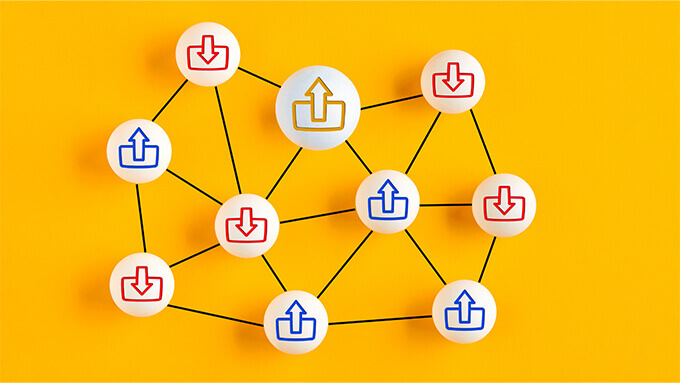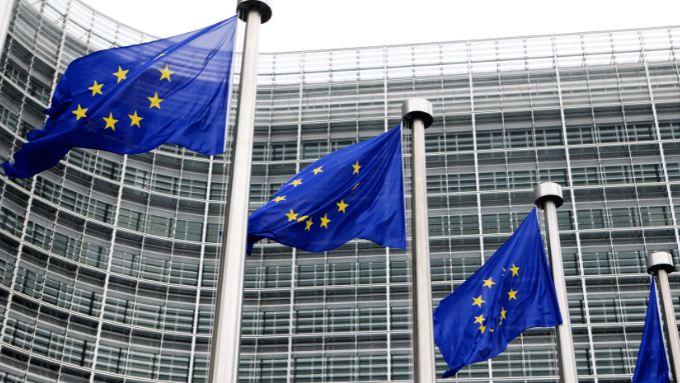Smartwatch Privacy: A Beginner’s Guide
Introduction
Smartwatches have undeniably revolutionized our lives in the past decade. Apart from their core function as a timepiece, these wearable computers packaged in the form of a watch enable us to answer incoming calls, reply to messages and skim through social media notifications in seconds. Their steady rechargeable lithium-ion battery enables them to measure our heart rate, blood pressure, sleeping patterns, exercise routine, and even our calorie consumption and show daily reports on their touchscreen. However, as these devices carry on with their routine body-monitoring activities, questions regarding their compliance with data protection laws and cyber-security protocols began to arise. Have these devices turned from fashionable wearable computers to devices that collect personal data for commercial purposes?
This Newsletter aims to provide a brief evaluation of smartwatches’ data processing activities within the scope of Turkish data protection legislation.
General Data Processing Principles under Turkish Legislation
On 7 April 2016, after continuous efforts to align its national legislation with the European Union acquis, Turkiye adopted its first comprehensive data protection legislation with Law on Personal Data Protection No.6698 (“TDPL”). The TDPL has many similarities with EU Directive 95/46/EC, the predecessor of the Directive on General Data Protection Regulation (GDPR), and sets main data processing principles and obligations for data controllers.
The key concepts of TDPL are defined in Article 3. Consequently, personal data is defined as “any type of information that relates to an identified or identifiable individual”, whereas a data subject is “the individual whose personal data is processed”. Processing of personal data is defined as “any type of action made using personal data, such as collection, recording, storage, preservation, alteration, adaptation, disclosure, transfer, retrieval, making available for collection, categorization or blocking its use by wholly or partly automatic means or otherwise than by automatic means which form part of a filing system” under the same article.
The TDPL identifies separate “data controller” and “data processor” concepts. Accordingly, data controller is defined as “the individual or legal entity that determines the purposes and tools of processing of the personal data, and is responsible for the establishment and management of a data recording system” whereby a data processor is “the individual or legal entity that processes personal data, with the authority bestowed by the data controller, and on behalf of the data controller”.
The fundamental personal data processing principles are outlined under Article (4) of TDPL and personal data can only be processed in compliance with the procedures and principles set forth under TDPL and relevant laws. Such principles stipulated under this article are as follows;
- lawfulness and conformity with rules of bona fides,
- accuracy and being up to date, where necessary,
- being processed for specific, explicit and legitimate purposes,
- being relevant with, limited to and proportionate to the purposes for which they are processed,
- being retained for the period of time stipulated by relevant legislation or the purpose for which they are processed.
Following these principles, Article 5 (1) sets the rules for legal grounds for processing personal data by stating that personal data cannot be processed without the data subject’s explicit consent and such explicit consent needs to be freely given, specific and informed consent. The TDPL then lists exceptions to this rule under Article 5 (2) whereby the data subjects’ consent is not required. These exceptions are; i) if the processing is clearly provided for by the laws, ii) if the processing is necessary for the protection of life or to prevent the physical injury of a person, in cases where that person cannot express consent or whose consent is legally invalid due to physical disabilities, iii) processing of personal data belonging to the parties of a contract, is necessarily provided that it is directly related to the conclusion or fulfillment of that contract, iv) it is mandatory for the controller to be able to perform their legal obligations, v) the data concerned is made available to the public by the data subject themselves, vi) data processing is mandatory for the establishment, exercise or protection of any right and vii) it is mandatory for the legitimate interests of the controller, provided that this processing shall not violate the fundamental rights and freedoms of the data subject.
For some categories of personal data, the exceptions for the explicit consent requirement are more limited. Subsequently, Article 6 (1) of TDPL brings a definition for special categories of personal data which relate to the “race, ethnic origin, political opinion, philosophical belief, religion, sect or other belief, clothing, membership to associations, foundations or trade-unions, health, sexual life, convictions and security measures, and the biometric and genetic data”. In terms of Article 6 (3), for data related to health and sexual life, data subject’s explicit consent will not be needed only if such data is processed by persons under confidentiality obligation and for the purposes of protection of public health, protective medicine, medical diagnosis, treatment, and care services.
TDPL’s data processing principles are a fundamental component of the data controllers’ obligations. As indicated under Article 10 of TDPL and Communiqué on Principles and Procedures to be Followed in Fulfillment of the Obligation to Inform (“Communiqué”), data controllers are required to inform data subjects when they begin to process their personal data. In its simplest form, privacy notices to be given to the data subjects need to include the following information; i) identity of the data controller and its representative (if any), ii) purpose of processing the personal data, iii) legal grounds for processing personal data, iv) method for collecting the personal data and v) data subjects’ rights depicted under Article 11 of TDPL.
Smartwatches and TDPL
As briefly introduced above, smartwatches offer their users various health and productivity applications and their usage can create a large amount of data also integrated with the Internet of Things (“IoT”) to create a more personalized experience. The concept of IoT refers to “an infrastructure that interacts with other devices or systems, as billions of sensors embedded in everyday devices are designed to record, process, store and transfer data and are associated with unique identifiers”.[1] Thus, smartwatches may have an inherent privacy risk.
In terms of TDPL, the usage of smartwatch applications may trigger the processing of personal data, especially health data. As required under TDPL, data controllers have an obligation to inform data subjects in a manner that is adequate under TDPL and the Communiqué and obtain data subjects’ consent in case there is no other legal ground for processing personal data. Some technology companies present detailed privacy policies outlining their data processing activities on their website and obtain data subjects’ consent when required. Nevertheless, data controllers also need to comply with the principle of proportionality as outlined under Article 4 of TDPL when processing users’ personal data. Otherwise, apart from its consequences under TDPL, users’ personal data would become more vulnerable to cyber-attacks.[2]
Conclusion
The usage of smartwatches may make their users’ life easier but there are certain data privacy implications that need to be addressed under TDPL. Data controllers need to comply with these rules and regulations, offer detailed privacy notices to the users and obtain their consent where necessary.
- Kama Işık, Sezen: Avrupa Veri Koruma Hukukuna Anayasal Bir Bakış, İstanbul, On İki Levha Yayıncılık, 2020, s.185.
- Akçınar, Melik Ahmet: “Akıllı Saatler ve Kişisel Veriler”, Bilişim Hukuku Dergisi, 2022, C 4, S 2, s. 248.
All rights of this article are reserved. This article may not be used, reproduced, copied, published, distributed, or otherwise disseminated without quotation or Erdem & Erdem Law Firm's written consent. Any content created without citing the resource or Erdem & Erdem Law Firm’s written consent is regularly tracked, and legal action will be taken in case of violation.
Other Contents

As part of the 2020 European Data Strategy, the Regulation on harmonized rules on fair access to and use of data (Data Act or Act) aims to boost the European Union’s (EU) data economy by maximizing data access and data use in a competitive and fair environment.

On September 2025, the Court of Justice of the European Union (“CJEU”) delivered its judgment in Single Resolution Board (SRB) v. European Data Protection Supervisor (EDPS), providing some clarification on the identifiability of data under the EU data protection regime. The case examined whether information that...

In Türkiye, it has recently become increasingly common, especially in retail stores, to send verification codes to data subjects by SMS during the provision of goods and services and to process personal data in this way. In the complaints submitted to the Personal Data Protection Board (“Board”), it has been...

In contemporary workplaces, employers frequently implement surveillance systems for reasons such as ensuring occupational health and safety, maintaining workplace order, operating internal control mechanisms, and preventing potential misconduct. However, such monitoring practices often raise significant...

Although the Turkish Personal Data Protection Law No. 6698 (KVKK) stipulates certain rules on cross-border personal data transfer, the effective functioning of the transfer rules was limited over time due to some difficulties in practice. In particular, until late 2024, the application process for permission to transfer...

Personal Data Protection Law numbered 6698 (“PDPL”) was first drafted based on the Directive 95/46/EC of the European Parliament and of the Council on the protection of individuals about the processing of personal data and on the free movement of such data, and entered into force in 2016...

Typically, when an employee departs, their corporate email account remains active and accessible to the employer for a period of time. During this time, the email archive and new incoming messages are forwarded to the employee's manager or another colleague...

In today's world, we now have the opportunity to purchase many products and services through e-commerce platforms with a single click from wherever we are. During these purchases, our personal data are collected and used through the websites or mobile applications of e-commerce platforms for various...

The processing of genetic data has the potential to affect not only the data subjects but also the persons with whom the data subject is genetically connected. “The Guidelines on Issues to be Considered in the Processing of Genetic Data” (“Guidelines”) published by the Personal Data Protection Authority...

In its decision regarding Case-300/21 and dated May 4, 2023, the Court of Justice of the European Union (“CJEU”) evaluates the right to compensation for an infringement of the European Union General Data Protection Regulation (“GDPR”) regulated in Article 82 of the GDPR. The CJEU decided that a mere...

The Personal Data Protection Law numbered 6698 (“PDPL”) introduces definitions for many concepts such as personal data, data controller, data processor and data subject. In terms of understanding and interpreting these concepts, secondary legislation, Personal Data Protection Authority (“Authority”) guidelines...

The Covid-19 pandemic and recent technological developments have significantly accelerated the digital transformation of all sectors. However, this rapid change especially in the financial sector (mobile banking, e-commerce, contactless payments, etc.) has brought some risks along with making life extremely...

The Personal Data Protection Authority (“DPA”), on 16.06.2022, published the Draft Guidelines on Examination of Loyalty Programs within the Scope of Personal Data Protection Legislation (“Draft Guidelines”). The public has until 16.07.2022 to submit comments on them, and after these are evaluated...

The German Competition Authority (“Bundeskartellamt”) had previously found Meta (formerly Facebook) responsible for abusing its dominant position in the social network market by collecting and processing the personal data of its users without their consent and imposed measures on Meta and its associated...

Banks process large volumes of personal data in their daily operations. In order to deal with this sensitive information, the Turkish Personal Data Protection Authority, in cooperation with the Banks Association of Turkey, published Good Practice Guidelines on Personal Data Protection in the Banking...

The procedural rules on mass claims within European Union (“EU”) Member States is not uniform. To improve the position of consumers who might wish to make such claims, the European Parliament passed the Collective Redress Directive (“Directive”). The impact of the Directive is expected to...

In February 2020, the European Commission (“Commission”) published “A European Strategy for Data” as part of a wider drive concerning digital transformation and policy. Through this communication, the European Union (“EU”), defining itself as having a leading role in the data economy...

The Regulation on Protection and Processing of Personal Data by the Social Security Institution (the “Regulation”), the purpose of which is to determine the procedures and principles for processing data obtained within the scope of the duties and authority of...

The Personal Information Protection Law of the People’s Republic of China (“PIPL”) passed at the 30th meeting of the Standing Committee of the 13th National People’s Congress on 20 August 2021 and entered into force on 1 November 2021 as per Article 74...

In today's world, there is no doubt that data has become one of the most valuable assets and resources for some companies. The ability to collect, store, process, and analyze data on a large scale has dramatically changed...









